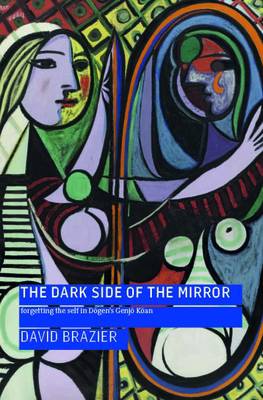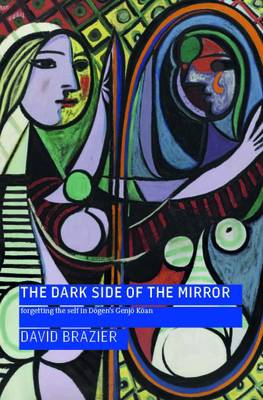
Je cadeautjes zeker op tijd in huis hebben voor de feestdagen? Kom langs in onze winkels en vind het perfecte geschenk!
- Afhalen na 1 uur in een winkel met voorraad
- Gratis thuislevering in België vanaf € 30
- Ruim aanbod met 7 miljoen producten
Je cadeautjes zeker op tijd in huis hebben voor de feestdagen? Kom langs in onze winkels en vind het perfecte geschenk!
- Afhalen na 1 uur in een winkel met voorraad
- Gratis thuislevering in België vanaf € 30
- Ruim aanbod met 7 miljoen producten
Zoeken
The Dark Side of the Mirror
Forgetting the Self in Dōgen's Genjō Kōan
David Brazier
Paperback | Engels
€ 22,45
+ 44 punten
Omschrijving
Genjō Kōan is the most important chapter in Zen master Dōgen's principal major work, the Shōbōgenzō. Although Genjō Kōan has been translated into English many times, and is familiar to Buddhists both east and west, it is still not well understood. This new commentary by Buddhist teacher and author David Brazier draws back the curtain revealing the deeper meaning of the text in language that will be as transparent to the general reader as it is informative to the specialist. The Dark Side of the Mirror reveals the pivotal principle at the heart of Dōgen's Zen and shows how his revelation of it was rooted in his personal experience, as well as in the religious consciousness of his time. For Dōgen scholars, Brazier provides a wealth of previously unpublished connections within Dōgen's thought, resolving knotty problems of interpretation. For Zen practitioners, Genjō Kōan reveals the meaning of satori and the way that it irreversibly commits the practitioner to a life-long 'going forth' in the service of all sentient beings. For the general reader it provides a unique insight into Japanese and Chinese medieval religion and, through this prism, throws light upon spirituality and spiritual experience universally.
Specificaties
Betrokkenen
- Auteur(s):
- Uitgeverij:
Inhoud
- Aantal bladzijden:
- 328
- Taal:
- Engels
Eigenschappen
- Productcode (EAN):
- 9781911407256
- Verschijningsdatum:
- 18/06/2019
- Uitvoering:
- Paperback
- Formaat:
- Trade paperback (VS)
- Afmetingen:
- 155 mm x 234 mm
- Gewicht:
- 589 g

Alleen bij Standaard Boekhandel
+ 44 punten op je klantenkaart van Standaard Boekhandel
Beoordelingen
We publiceren alleen reviews die voldoen aan de voorwaarden voor reviews. Bekijk onze voorwaarden voor reviews.









